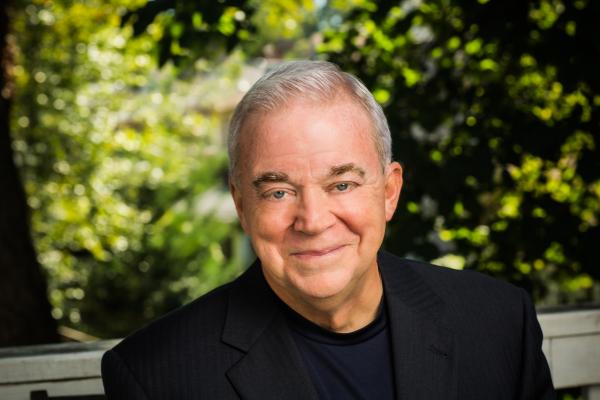The Pew Forum recently released a new study, “Nones on the Rise.” This was not about my friends called the “Nuns On The Bus,” who just did a tour around the country focusing on social justice. Rather, It details the concerning trend of those in our country who have given up on religion altogether.
Social scientists tell us that adults, especially young adults, are increasingly disconnected from our established religious traditions. “Nones,” the Pew forum calls them, have grown from 15 percent of U.S. adults to 20 percent in only five years. One-in-three adults under 30 check the religious affiliation box, “None of the above” or “Unaffiliated.” Despite the fact that 68 percent of nones believe in God, only 5 percent of them attend church once or more a week, and 22 percent attend monthly/yearly. (Learn more about this group in our blog series Meet the Nones.)
But the focus on the next generation is not all bad news. On Tuesday, I had the pleasure of moderating a diverse panel of seven young evangelicals. Each had unique experiences and backgrounds. Some self-identified as liberal, while others self-identified as conservative. But those political ideologies could not separate their core evangelical principles.
God created the earth to produce every thing Adam and then Eve — and then their issue, and then all of us — would need. In the beginning, the garden needed little tending, but — due to a rather fortunate fall — eventually Adam and Eve, as his helpmate, and their children and the issue of generations had to toil the earth to pull from the garden those things God intended to meet their needs.
Along the way, progress was made in the form of extensions of the garden bounds, the distribution of water and other nutrients, applications of healthful foods and herbs, techniques for every aspect of garden production. A community grew from a couple who worked hard as stewards, first out of penance and then, I think, out of love for the land provided to sustain them and for each other as they worked together. This is the story of how sustainability came to be.
To simplify: God created the Heavens and Earth. He designed a glorious garden and put in it everything needed to make that garden productive: plants, water, clean air, soil, enrichers (bugs, worms, life, decay), animals, and the Sun, the first and last fuel. And, finally, He made man and woman.
Christopher Swift, adjunct professor of national security studies at Georgetown University, traveled to Yemen this summer to interview 40 Yemeni tribal and religious leaders about the increasing U.S. drone attacks on that country. He found that the Yemeni public does not support the attacks. According to National Defense magazine, in a recent panel discussion at Georgetown, Swift said
“There is currently a shift in Yemen from drone attacks that target a particular individual to attacks that are “based upon generalize patterns of what we believe are militant characteristics and militant behavior," he said. Swift advocated a decrease in these “signature strikes,” saying they add to Yemeni concerns about civilian casualties and the United States impeding on their nation’s sovereignty.”
A report this morning by Reuters came to the same conclusion:
“Yemen's interim president has won U.S. praise for cooperating in a war on al Qaeda, but his recent public support for drone strikes that sometimes kill civilians could undermine his domestic popularity and stir sympathy for militants. ... Yemenis complain the U.S. focus on militants is a violation of sovereignty that is driving many towards al Qaeda and diverting attention from other pressing issues such as unemployment, corruption, water depletion and economic revival.”
A U.S. drone attack early Thursday morning killed nine suspected militants. Reuters reports:
"Nine suspected al Qaeda militants were killed in what a security source and residents said was a U.S. drone attack on a farmhouse outside a town in southern Yemen that was held by militants last year.
"The farmhouse just west of Jaar, one of two southern towns that Yemen's army took back from rebel control this summer, was hit by three separate missile strikes at dawn, they said.
"The residents said they found six charred bodies and the scattered remains of three other people, including Nader al-Shaddadi, a senior al Qaeda militant in the southern Abyan province who led the group that occupied Jaar."
In case you’re out of the loop, Passion Pit have emerged over the last five years as a pretty big indie-dance-rock group from the Boston area, seamlessly mixing elements of Vampire Weekend, the Beach Boys, and 80s music, among many other sounds and influences. Passion Pit started as a side project of lead singer Michael Angelakos — one that he thought wouldn’t go anywhere and was just for fun — and has quickly gained steam, releasing its second album last summer and performing on Saturday Night Live this past weekend.
On Tuesday they wrapped up three sold-out shows in Washington, D.C., with a triumphant performance, inspiring even the more awkward shyer attendees to move a little. Even the frat daddies who showed up because their girlfriends made them were getting into it.
Angelakos is well aware of Passion Pit’s tendency for infectious catchy songwriting.
“People feel like they're always singing along,” Angelakos told the Huffington Post. “There are always parts to sing along to. It's built into the music.”
It's Thursday. I'm hitting the back of my closet and have second-day hair. Relate? Good, then this video is for you.
Take a few minutes to remember that our differences — whether it be crooked smiles, frizzy hair, or 6-foot-frame — to others look like character, enviable natural curls, or modelesque stature. You're beautiful. (Yes, you.)
The clip is also full of good advice, but my personal favorite: "If it makes you feel awesome, wear it." (Do you think that means I can get away with yoga pants at work?)
America is in dire need of comprehensive immigration reform. It is an ethical and moral issue for sure, but it is also an economic one. Our nation’s future economy prosperity depends on migrant labor. Immigration laws that have been passed in states like Arizona, Georgia, and Alabama have severely hurt the state economies, local communities, and small businesses that rely upon migrant workers for farm labor.
The Senior Editor of CNBC.com, John Carney has asserted that there is no crisis related to a shortage of migrant farm workers. Well, to be perfectly blunt, I believe that Mr. Carney is wrong.
Editor's Note: Theologian extraordinnaire Tripp Hudgins put together this edition of First Thoughts on living with abundance, butting up against living with anxiety.
Art and iconography — both ancient and modern — from Ethiopian Orthodoxy (also known as Tawahedo or "being made one" in the Ge'ez language that remains the official language of the Orthodox liturgy here) were ever-present — in shops, restaurants, and hotel lobbies as well as in the myriad churches and monasteries, and the sounds of ancient Christian prayers and the chants of monks filled the air from the capital city of Addis Ababa to the kebeles (or neighborhoods) on the outskirts of Bahir Dar, another major city about 60 km from the Sudanese border.
DURHAM, N.C. — Protestants have traditionally celebrated Oct. 31 as the anniversary of the start of the Protestant Reformation, a movement that divided Western Christendom and gave birth to such diverse religious groups as Lutherans, Presbyterians, Anglicans, and Mennonites.
On Oct. 31, 1517, an Augustinian friar named Martin Luther nailed 95 theses for debate on the door of the Castle Church in Wittenberg, Germany, and so sparked a religious reform even he could not control.
But Luther's public life actually began five years earlier, 500 years ago this week, on Oct. 19, 1512, when he finished his formal theological education and was installed as a professor of Bible at a relatively new and still nonprestigious Catholic university in Saxony.
No one, least of all his patrons, expected this soft-spoken young man with a tenor voice and a bubbling sense of humor to turn into a religious bomb thrower, whose theological convictions would alter the religious and political structures of Europe for five centuries. Indeed, no one could have been more astonished by this unexpected development than Luther himself.






